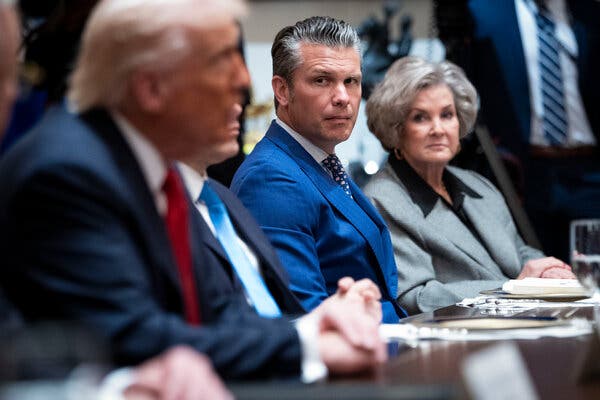UPDATE: The U.S. military launched a deadly strike on a boat in the Caribbean Sea early today, killing six individuals linked to drug smuggling operations. This attack, confirmed by Defense Secretary Pete Hegseth, marks a significant escalation in the administration’s controversial campaign against narcotics trafficking, raising the total death toll to 43 in a series of attacks since the campaign’s inception.
The strike occurred overnight in international waters, targeting a vessel reportedly operated by Tren de Aragua, a notorious Latin American criminal organization. Hegseth took to social media to announce the operation, stating, “If you are a narco-terrorist smuggling drugs in our hemisphere, we will treat you like we treat Al-Qaeda.” The statement was accompanied by a brief video clip showing the boat before it was engulfed in an explosion.
This operation is part of a broader strategy under the Trump administration, which has faced criticism for its lethal approach to drug trafficking. Legal experts have raised concerns that such military actions violate both domestic and international law, particularly as the targets reportedly include civilians. Traditionally, the U.S. has utilized the Coast Guard to intercept drug smuggling attempts, often leading to arrests rather than fatal strikes.
Hegseth’s assertion that drug trafficking constitutes an armed attack on the U.S. has not been substantiated with a legal framework, drawing skepticism from lawmakers and legal scholars. The administration claims these actions are justified due to the alarming rise in overdose deaths among American users, which reached approximately 80,000 last year, significantly driven by fentanyl from Mexican labs.
The latest attack is part of a series of military strikes that have targeted alleged drug smugglers, including previous operations this month that resulted in multiple fatalities. Critics argue that these tactics blur the lines between law enforcement and military action, citing the lack of clear legal justification for targeting individuals not actively engaged in combat.
The implications of today’s strike extend beyond immediate casualties. The U.S. has increasingly focused its military efforts on Venezuelan criminal groups, with President Nicolás Maduro being labeled as a leader of drug trafficking networks. Lawmakers have not formally authorized military engagement against these groups, raising significant ethical and legal questions about the administration’s current strategy.
As the situation develops, observers are urged to consider the broader consequences of this military approach in the fight against drugs and its potential impact on U.S. foreign relations, particularly with Colombia and Venezuela. The administration’s next steps remain unclear, but calls for more stringent oversight of military operations are likely to intensify.
Stay tuned for further updates on this developing story.
